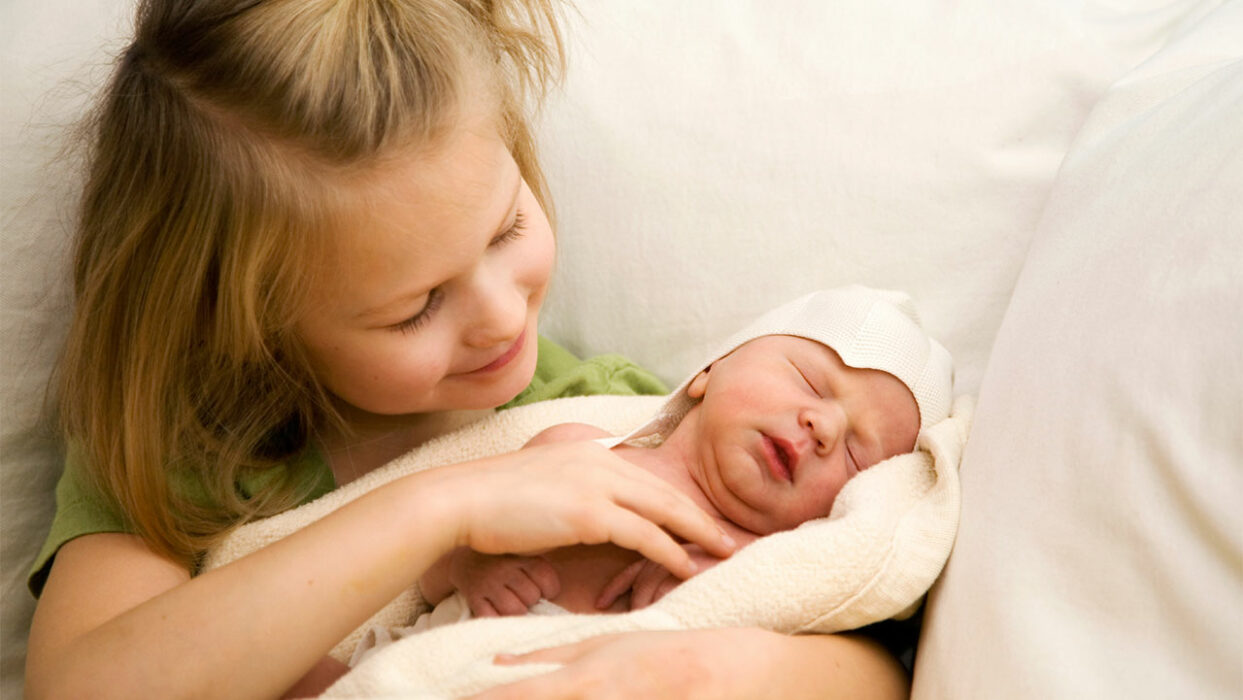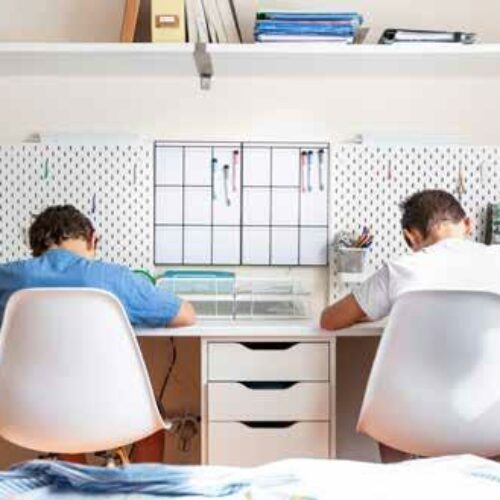Helping your kids adjust to a new baby
The lives and routines of children and teens are dramatically changed when a new baby sibling arrives. Here we look at some pointers to help them adjust to the family member.
The lives of most children or teens involve routine, structure and established inter-family dynamics and relationships – including their relationship with you and the time they’re used to having with you. However, when a new baby comes home, both mother and baby (and of course dad!) have very important and specific needs, and as a result your children and teens may react with excitement, happiness, nervousness, jealousy or even anger.
So how do you help them adjust to life with a new baby in the house? The best way is to involve your children with their new sibling right from the start, which will help them to adjust more quickly. Talk to them about how they want to be involved with the baby, but make sure you are still able to spend one-on-one time with your older kids to maintain the strength of your relationship.

COMMON SIBLING FEELINGS TOWARDS A NEW BABY
School-age children will typically have strong feelings about the new family structure which might include:
- Being initially happy and excited about having a tiny baby to help care for, but are soon disappointed because the reality of a newborn is different from their idea of what it would be like.
- Jealous because literally overnight, your main priority is the new baby and your child or children will suddenly feel they have to share or compete for your attention.
- Irritated and resentful because the new baby cries a lot, disrupts their sleep, creates extra chores, or means they have to wait for your help or attention.
- Excluded or not as important to you, if you can’t give them as much attention as they’re used to getting from you.
- Embarrassed – especially if they’re teenagers and the only ones among their friends with a newborn sibling All children have to make adjustments when a new baby joins the family.
If your older child’s initial reaction to the baby isn’t positive, it might help to know that positive sibling relationships often take time to develop. If you can make this a positive and exciting time, your child will feel that the change is about everybody in the family and not just about the new baby. You could highlight the things you love about your children and the important contribution they make to the family.
INVOLVING YOUR TODDLER WITH THE NEW BABY
It’s good for you and your husband to talk with your child about being involved with the new baby – and you can start these conversations even before the baby is born. Your toddler might like to get involved by:
- Passing you the things you need to give the baby a bath or nappy change.
- Singing a song to the baby or playing peekaboo.
- Reading the baby a story.
- Sharing bath time.
- Playing gently with the baby.
- Having lots of pictures taken with them and the new baby, and displaying them so they can take pride in seeing themselves as a big brother or sister.
When your toddler wants to get involved, lots of praise will help your child feel good about helping and encourage them to do it again. If your child isn’t interested in helping, try waiting for a few days and then asking again. Let your toddler regularly overhear you talking to the new baby about how lucky s/he is to have such an amazing big brother/sister, and telling the baby about some great things about your toddler. Emphasising your teenage child’s age and maturity can encourage your child to feel more responsible and motivated to help.
Besides, try to set aside some time each day to talk with your child with no interruptions and organise some fun activities alone with your child if possible. Use family mealtimes as a time to focus on them and talk about what has happened during their day
TEENAGE CHILDREN
Your teenage child might like to be involved in more active care of the baby – for example, watching the baby while you catch up on a little sleep or prepare a meal. Remember, it’s normal for teenagers to be more interested in their own activities, friends and lives, than they are in babies. However, a bond will usually develop over time if you don’t force them together.
Also, a teenage child may not want to babysit or change diapers! Your child is more likely to want to be involved if they feel that it isn’t a chore, so try not to push your child into doing things for the baby if they are reluctant. about how they’re feeling about the changes in your family. And if your child has been expressing their feelings through challenging behaviour, it can make it less likely.
Make one-on-one time for older children
Children of all ages need a strong relationship and warm, loving interactions with you to feel secure and confident. This can be particularly important if older children feel like they’re getting less of your time and attention because of the new baby. One of the best ways to strengthen your relationship with your older children after your new baby arrives is to make some one-on-one time for your older children each day.
This time together is special in itself, and it can also give your child the chance to talk Work with the other adults in your child’s life – the children’s father, grandparents, aunts and uncles or caregiver – to make sure older children know that the people closest to them want to spend time with them.
Don’t worry about finding the time for everyone! The new baby will do a lot of sleeping in the early months and if you coordinate as much sleep time as possible with your baby, you’ll find you still have great quality time with your other children.











Comments